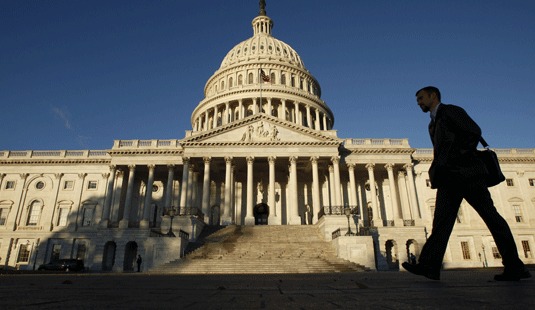Three Bankers: Brian

Read Part 1 in the 'Three Bankers' miniseries here. Read Part 2 here.
Banker 3: Brian
Brian grew up in a rural state with the cards stacked against him—middle-class, scrappy and short, he overachieved his way into being the top finance student in my class. He taught me how a collateralized debt obligation worked in September of 2008, when no one else had a flipping clue as to why Lehman Brothers was collapsing, using stick figures and diagrams.
(“So wait, the credit rating agencies did what to bad debt?” I shrieked, outraged.)
(“Yep,” he sighed, and handed me a fresh gin and tonic.)
Miraculously he got a job at a major bank. I didn’t hear much from him after we both graduated, though we occasionally chatted on Facebook about politics and funny Hulu videos he couldn’t watch while at work.
Then one day his job became redundant and he decided that he wanted to run for Congress.
“Well, it’s more like a Plan B in case things don’t work out,” he cautioned, after I picked my jaw off the floor. “But I’ve really been thinking about whether I want to continue in finance. I mean, I know the people I need to know, and I’m intelligent enough to run. But what’s the likelihood that I could actually make a difference in Congress?”
“As a singular person? Not very much.” I shrugged over the Internet. “Depends on which party you’d choose. Either of them would be really happy to have you, but in one case you’d have to sign your soul over to Grover Norquist, and in the other case you’d have to constantly freak out when a random Democratic caucus undermines you by accident.”
“I’m aware of that. It’s just…” The cursor blinked for a few slow minutes before he responded. “Am I supposed to be making piles of money for the rest of my life? Or can I do something that makes a real difference? It’s a tough decision to make.”
That night I turned over the proposition of seeing a former Wall Street banker attempt a run for office. A Wall Street banker. My own age. He could either pull off a John Kerry-esque speech in which he tosses his Hermes ties over the fence of the White House in front of an Occupy rally, or he could dig deeper into the trench of wealth and run as a moderate Republican. Secretly, I hoped he would do the former—if only as an experiment to see which way the driftless protesting youth would blow.
The next day I got a message saying that he received a lucrative offer to work at a London bank. “So much for my dreams of being a Congressman,” he joked.

